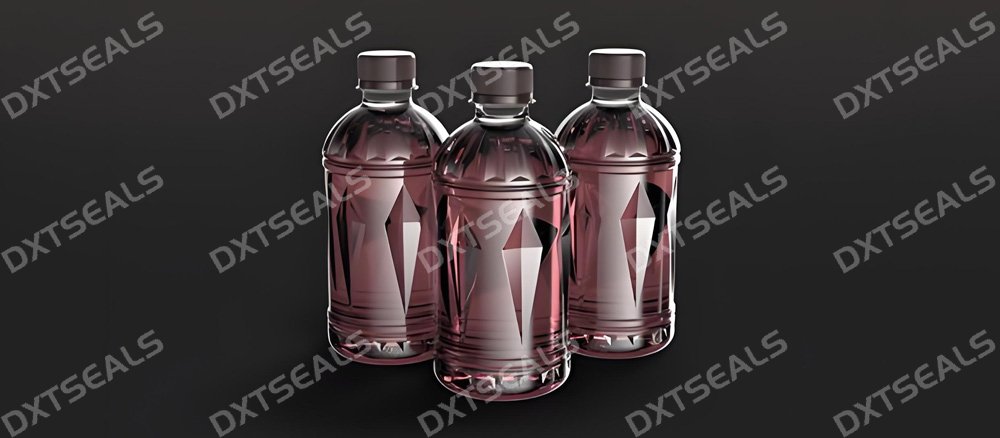
Introduction
Plastic products are an integral part of modern manufacturing, with their versatility and adaptability making them essential across various industries. Custom plastic product manufacturing provides the flexibility to design and produce components tailored to specific applications, ensuring optimal performance and durability. In this guide, we will explore the entire process of custom plastic product manufacturing, from selecting the right materials to applying the final products in different industries. At DXTSEALS, we specialize in producing high-quality custom plastic solutions that meet the diverse needs of our clients.
Understanding Custom Plastic Product Manufacturing
Custom plastic products are created to meet specific requirements, offering solutions for unique challenges in various industries such as automotive, medical, electronics, packaging, and consumer goods. The ability to customize plastic products ensures the optimal properties of the material for each application, such as resistance to heat, chemicals, or wear. Custom plastic manufacturing includes several stages, and understanding these processes is essential for achieving the desired results.
Step 1: Selecting the Right Plastic Material
The first step in the custom plastic manufacturing process is selecting the appropriate material. Different plastics offer varying properties, and the material chosen should match the specific requirements of the application. Some common types of plastic materials include:
- Polyethylene (PE): Known for its durability and chemical resistance, commonly used in packaging and consumer goods.
- Polypropylene (PP): A versatile plastic with high resistance to heat and chemicals, ideal for automotive and medical components.
- Acrylonitrile Butadiene Styrene (ABS): Popular for its strength and rigidity, commonly used in electronic housings and automotive parts.
- Polyvinyl Chloride (PVC): Used for plumbing, electrical insulation, and other industrial applications due to its high resistance to corrosion.
At DXTSEALS, we help clients select the right material based on the specific needs of the application, whether it requires flexibility, durability, chemical resistance, or high temperature tolerance.
Step 2: Designing the Custom Plastic Product
Once the material is selected, the next step is designing the product. The design phase involves working closely with engineers and designers to create a detailed blueprint of the component, considering factors such as dimensions, shape, functionality, and any specific performance requirements. CAD (Computer-Aided Design) software is often used to create precise and accurate designs, allowing for easy modifications and adjustments before production begins.
Step 3: Custom Plastic Manufacturing Processes
There are several manufacturing methods for producing custom plastic products, each suited to different types of applications. Some of the most common techniques include:
- Injection Molding: Ideal for high-volume production of complex shapes with high precision. It involves injecting molten plastic into a mold, where it cools and solidifies into the desired shape.
- Blow Molding: Used for producing hollow plastic products, such as bottles or containers, by inflating a heated plastic tube inside a mold.
- Rotational Molding: Best for producing large, hollow items with uniform wall thickness, such as tanks and containers.
- Extrusion: Involves forcing plastic through a die to create long shapes, such as pipes, sheets, and profiles.
- 3D Printing: A rapidly growing technology for creating custom prototypes and low-volume production, providing high flexibility in design.
Step 4: Quality Control and Testing
Quality control is an essential aspect of custom plastic product manufacturing. During the production process, products are carefully inspected to ensure they meet the required specifications and quality standards. Testing procedures may include:
- Dimensional Inspections: Ensuring the product meets the exact measurements and tolerances specified in the design.
- Performance Testing: Evaluating the plastic product’s ability to withstand stress, temperature, chemicals, or other factors relevant to its application.
- Visual Inspection: Checking for defects such as cracks, air bubbles, or surface imperfections that could affect the product's performance or appearance.
Step 5: Finished Product Application
After the product has passed quality control, it is ready for use in its intended application. Custom plastic products are used in a wide variety of industries, including:
- Automotive Industry: Custom plastic components such as dashboards, bumpers, and interior parts provide strength, lightweight properties, and cost-efficiency.
- Medical Industry: Custom plastic products like syringes, medical devices, and packaging must meet stringent regulatory standards for safety, durability, and biocompatibility.
- Electronics Industry: Plastic housings and components are essential for protecting delicate electronic components from external elements while offering insulation properties.
- Packaging Industry: Custom plastic packaging ensures the protection and safety of goods during transport and storage, while also being lightweight and cost-effective.
Conclusion
Custom plastic product manufacturing is a detailed process that requires careful planning, material selection, and precise execution. By choosing DXTSEALS for your custom plastic needs, you gain access to a team of experts dedicated to producing high-quality, durable plastic products that meet the specific demands of your industry. From selecting the right materials to delivering the final product, we ensure every step of the process aligns with your requirements, guaranteeing exceptional results.
